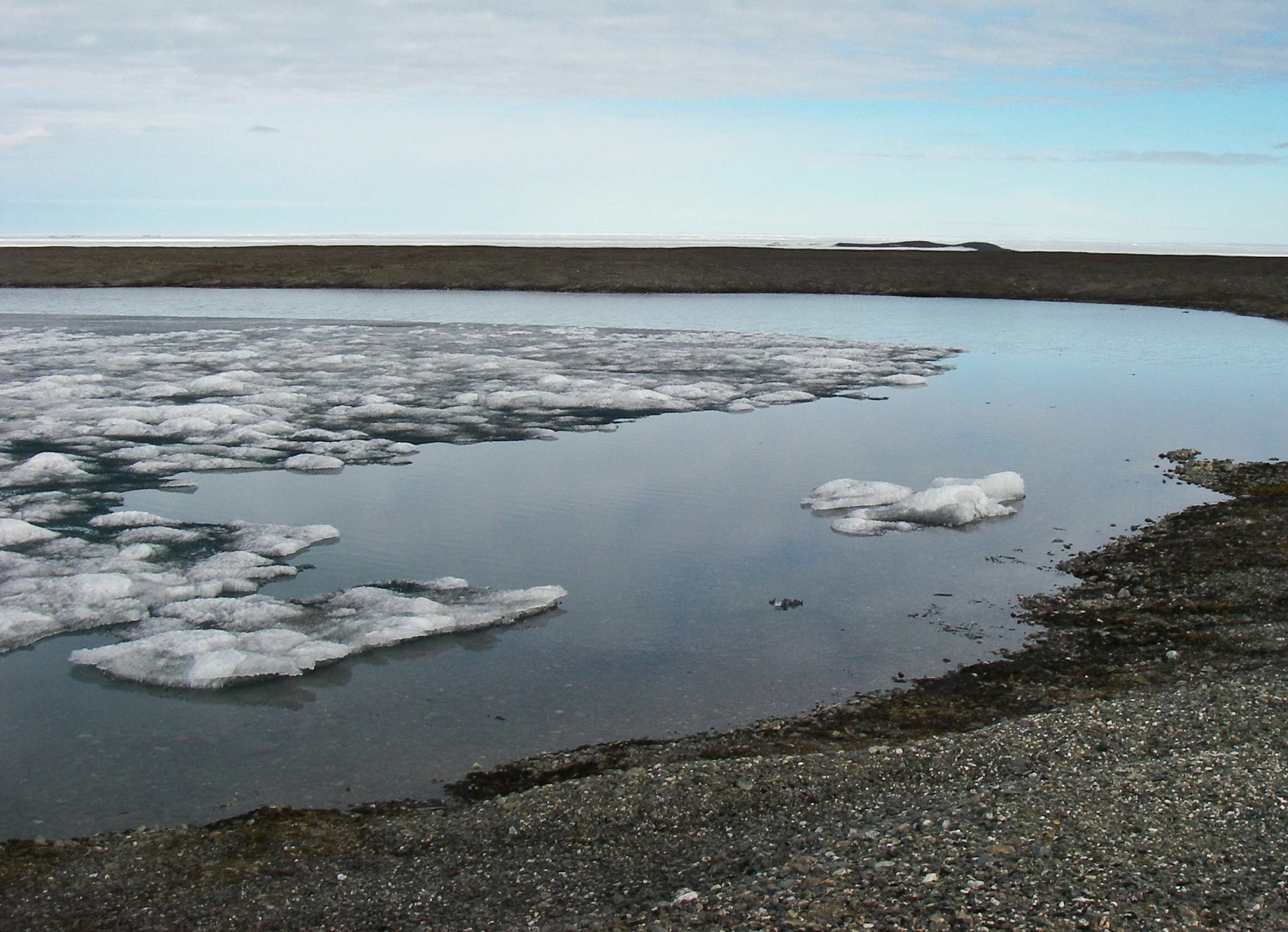
Northernmost Lake Resurrected Due to Warming
Algae in Greenland lake bouncing back after deep freeze, study finds.
The world's northernmost lake, situated near the coast of Greenland (map), is coming back to life.
Populations of microscopic algae, called diatoms, have been absent from the lake Kaffeklubben Sø for over 2,000 years. But a new study has found that the diatoms are returning, thanks to global warming.
"It's a pure climate change story," said study co-author Bianca Perren, a paleoecologist at the University of Franche-Comté in Besançon, France, who specializes in Arctic environmental change (see pictures).
Diatoms were once abundant in Kaffeklubben Sø, which was formed about 3,500 years ago after glacial retreats created numerous small lakes on the coastal plain.
As surrounding temperatures cooled, diatom populations decreased until they vanished some 2,400 years ago, Perren explained.
"Until about 1920, [the lake] was basically in a deep freeze," she said.
Ice completely covered its surface, cutting off any sunlight that had previously penetrated into the water. This lack of light, along with dropping temperatures, killed off the organisms beneath the surface.
(Also see "Global Warming Burning Lakes?")
Strong Evidence for Climate Change
Scientists began seeing a growth in the number of diatoms in the lake between 1960 and 1970 as summer temperatures began gradually increasing—varying by less than a degree throughout the years. By 1980, the diatom population had exploded.
A layer of ice three-to-six feet thick (one-to-two meters thick) covers the lake year-round, though the rising summer temperatures—now averaging around 34 degrees Fahrenheit (1.6 degrees Celsius)—cause some of the ice to melt, especially around the shore.
Temperaturewise, several degrees Celsius in northern Greenland makes a critical difference, said Perren. The warmer summer temperatures and ice meltage allow enough light into the lake so that life can grow.
A large portion of the study sought to determine if the surge in diatom population was caused in part by nitrogen pollution, which can cause algae to bloom. But no evidence of pollution—nitrogen or otherwise—was found in Kaffeklubben Sø, suggesting that the current rise in diatom population is due to climate change alone. (Take a global warming quiz.)
Jack Williams, director of the Center for Climatic Research at the University of Wisconsin at Madison, agreed, noting that the Kaffeklubben Sø study made a strong argument that this is a climate-driven change rather than a nutrient-driven change.
The current diatom population in Kaffeklubben Sø is the highest in recent memory, according to the study authors.
"We certainly expected to see some sort of biological growth," added study co-author Colin Cooke, a geoscientist at Yale University, added. "I didn't expect to see such a large response."
The northernmost lake study appears in the November issue of Geology Journal.